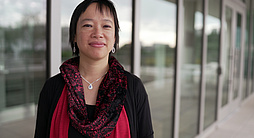Stefan G. Hofmann
Stefan Hofmann is a leading expert in the treatment of anxiety disorders and depression using cognitive behavioural therapy which his research has crucially shaped and further developed by employing neurological methods.
Last change:










